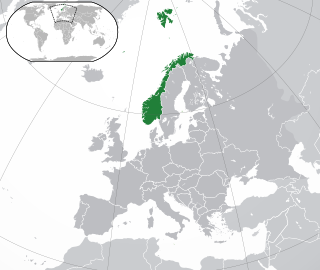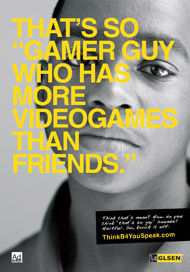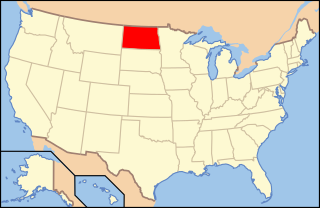Related Research Articles

The LGBT community is a loosely defined grouping of lesbian, gay, bisexual, transgender, LGBT organizations, and subcultures, united by a common culture and social movements. These communities generally celebrate pride, diversity, individuality, and sexuality. LGBT activists and sociologists see LGBT community-building as a counterweight to heterosexism, homophobia, biphobia, transphobia, sexualism, and conformist pressures that exist in the larger society. The term pride or sometimes gay pride expresses the LGBT community's identity and collective strength; pride parades provide both a prime example of the use and a demonstration of the general meaning of the term. The LGBT community is diverse in political affiliation. Not all people who are lesbian, gay, bisexual, or transgender consider themselves part of the LGBT community.

LGBT culture is a culture shared by lesbian, gay, bisexual, transgender, and queer individuals. It is sometimes referred to as queer culture, while the term gay culture may be used to mean "LGBT culture" or to refer specifically to homosexual culture.

Lesbian, gay, bisexuals, and transgender (LGBT) persons in Ukraine may face legal challenges not experienced by non-LGBT residents. Noncommercial, same-sex sexual activity between consenting adults in private is legal in Ukraine, but prevailing social attitudes are often described as being intolerant of LGBT people and households headed by same-sex couples are not eligible for any of the same legal protections available to opposite-sex couples.

Lesbian, gay, bisexual, and transgender (LGBT) rights in Canada are some of the most extensive in the Americas and in the world. Same-sex sexual activity was made lawful in Canada on June 27, 1969, when the Criminal Law Amendment Act was brought into force upon royal assent. In a landmark decision in 1995, Egan v Canada, the Supreme Court of Canada held that sexual orientation is constitutionally protected under the equality clause of the Canadian Charter of Rights and Freedoms. In 2005, Canada was the fourth country in the world, and the first in the Americas, to implement same-sex marriage nationwide.

The Rainbow Project is a non-profit organization based in Northern Ireland that promotes the health and wellbeing of the LGBT people and their families in Northern Ireland. The Rainbow Project is the largest LGBT organisation on the island of Ireland and has two central offices, in Belfast and Foyle, Derry.

Norway, like the other Scandinavian countries, is very progressive in regards to lesbian, gay, bisexual and transgender (LGBT) rights. In 1981, Norway became one of the first countries in the world to enact an anti-discrimination law explicitly including sexual orientation. Same-sex marriage, adoption, and assisted insemination treatments for lesbian couples have been legal since 2009. In 2016, Norway became the fourth country in Europe to pass a law allowing the change of legal gender for transgender people solely based on self-determination.
The Gay Police Association (GPA) was a British police staff association with members in all 52 UK police forces. The GPA was founded in 1990 by Constable James Bradley as LAGPA, and represented the needs and interests of gay and bisexual police officers and police staff in the United Kingdom. Other founding officers were Iain Ferguson, Ashley Wilce and Tony Murphy. The founding of the GPA for England and Wales also inspired satellite organisations in Scotland in 1990 and Northern Ireland in 2003.
This is a timeline of notable events in the history of the lesbian, gay, bisexual and transgender (LGBT) community in Canada. For a broad overview of LGBT history in Canada see LGBT history in Canada.

Lesbian, gay, bisexual, and transgender (LGBT) persons in El Salvador may face legal and social challenges not experienced by non-LGBT residents. Both male and female same-sex sexual activity are legal in El Salvador, but same-sex couples and households headed by same-sex couples are not eligible for the same legal protections available to opposite-sex married couples.

The Think Before You Speak campaign is a television, radio, and magazine advertising campaign launched in 2008 and developed to raise awareness of the common use of derogatory vocabulary among youth towards lesbian, gay, bisexual, transgender, queer/questioning (LGBTQ) people. It also aims to "raise awareness about the prevalence and consequences of anti-LGBTQ bias and behaviour in America's schools." As LGBTQ people have become more accepted in the mainstream culture more studies have confirmed that they are one of the most targeted groups for harassment and bullying. An "analysis of 14 years of hate crime data" by the FBI found that gays and lesbians, or those perceived to be gay, "are far more likely to be victims of a violent hate crime than any other minority group in the United States". "As Americans become more accepting of LGBT people, the most extreme elements of the anti-gay movement are digging in their heels and continuing to defame gays and lesbians with falsehoods that grow more incendiary by the day," said Mark Potok, editor of the Intelligence Report. "The leaders of this movement may deny it, but it seems clear that their demonization of gays and lesbians plays a role in fomenting the violence, hatred and bullying we're seeing." Because of their sexual orientation or gender identity/expression, nearly half of LGBTQ students have been physically assaulted at school. The campaign takes positive steps to counteract hateful and anti-gay speech that LGBTQ students experience in their daily lives in hopes to de-escalate the cycle of hate speech/harassment/bullying/physical threats and violence.

Lesbian, gay, bisexual and transgender (LGBT) people in Mongolia do not fully enjoy the rights that non-LGBT people are afforded, though there have been substantial improvements since the 1990s. Homosexuality was criminalised in Mongolia in 1961 through its Criminal Code. Following Mongolia's peaceful transition to a democracy in the 1990s, homosexuality was legalised and awareness about LGBT people has become more prevalent. Hate crimes on the basis of sexual orientation and gender identity result in additional legal penalties and hate speech based on these two categories has been outlawed in the country since 1 July 2017. Households headed by same-sex couples are, however, not eligible for the same legal protections available to opposite-sex couples.

Lesbian, gay, bisexual, and transgender (LGBT) people in the United States have a long history, including vibrant subcultures and advocacy battles for social and religious acceptance and legal rights.

Lesbian, gay, bisexual, and transgender (LGBT) persons in the U.S. state of North Dakota may face some legal challenges not experienced by non-LGBT residents. Same-sex sexual activity is legal in North Dakota, and same-sex couples and families headed by same-sex couples are eligible for all of the protections available to opposite-sex married couples; same-sex marriage has been legal since June 2015 as a result of Obergefell v. Hodges. State statutes do not address discrimination on account of sexual orientation or gender identity; however, the U.S. Supreme Court's ruling in Bostock v. Clayton County established that employment discrimination against LGBT people is illegal under federal law.
This article gives a broad overview of lesbian, gay, bisexual and transgender (LGBT) history in Canada. LGBT activity was considered a crime from the colonial period in Canada until 1969, when Bill C-150 was passed into law. However, there is still discrimination despite anti-discrimination law. For a more detailed listing of individual incidents in Canadian LGBT history, see also Timeline of LGBT history in Canada.

American Veterans for Equal Rights (AVER) is the oldest Lesbian, Gay, Bisexual and Transgender (LGBT) Veterans Service Organization (VSO) in the United States. Founded in 1990, AVER is a non-profit VSO that supports and advocates for the rights of LGBT military veterans, active duty service members, and their families.

New York City has one of the largest LGBTQ populations in the world and the most prominent. Brian Silverman, the author of Frommer's New York City from $90 a Day, wrote the city has "one of the world's largest, loudest, and most powerful LGBT communities", and "Gay and lesbian culture is as much a part of New York's basic identity as yellow cabs, high-rise buildings, and Broadway theatre". LGBT Americans in New York City constitute by significant margins the largest self-identifying lesbian, gay, bisexual, and transgender communities in the United States, and the 1969 Stonewall riots in Greenwich Village are widely considered to be the genesis of the modern gay rights movement.
This is a timeline of notable events in the history of non-heterosexual conforming people of Asian and Pacific Islander ancestry, who may identify as LGBTIQGNC, men who have sex with men, or related culturally-specific identities. This timeline includes events both in Asia and the Pacific Islands and in the global Asian and Pacific Islander diaspora, as the histories are very deeply linked.
This is a timeline of notable events in the history of the lesbian, gay, bisexual, and transgender community in the United States.
Dr. Kim Fountain is Chief Operating Officer of the Center on Halsted, the Midwest's largest LGBTQ+ community center, located in Chicago, Illinois. She was previously Executive Director of the Pride Center of Vermont and Associate Director of Education & Public Advocacy for the New York City Gay & Lesbian Anti-Violence Project. Fountain has served on the New York State Crime Victims Board and is a trainer for the Office of Victims of Crime and the National Coalition of Anti-Violence Programs' Reports Committee. She serves on the board of the National Asian Pacific American Women's Forum.
References
- ↑ Couto, Joe. "Covered in Blue: Police Culture and LGBT Police Officers" (PDF). RoyalRoads.ca. dspace.royalroads.ca. Archived from the original (PDF) on 16 September 2016. Retrieved 8 September 2016.
- ↑ Jones, Matthew; Williams, Matthew L. (2015-03-04). "Twenty years on: lesbian, gay and bisexual police officers' experiences of workplace discrimination in England and Wales" (PDF). Policing and Society. 25 (2): 188–211. doi:10.1080/10439463.2013.817998. ISSN 1043-9463. S2CID 295115.
- 1 2 Cohen, Susan (April 25, 1979). "Homosexual Police Officers". The Evening Independent. Retrieved 8 September 2016.
- 1 2 Weber, Bruce (May 17, 2015). "Sam Ciccone, a Champion of Gay Police Officers, Dies at 71". New York Times. Retrieved 8 September 2016.
- ↑ Lewis, Alfred; Valentine, Paul. "Police Transsexual Seeks Active Duty". The Washington Post. Retrieved 31 Mar 2021.
- ↑ Anna Qundlen, "A Tough Month in the New Life of a Policeman", The New York Times, Dec. 5, 1981.
- ↑ Scotto, Michael. "Greenwich Village Street Named After Man Considered NYPD's First Publicly Gay Officer". \NY1.com. Time Warner Cable Enterprises LLC. Retrieved 8 September 2016.
- ↑ Dickey, Jim (March 16, 1987). "Gay police officers increasingly in open". Spokane Chronicle. Knight Ridder. Retrieved 8 September 2016.
- ↑ Duffy, rew; Citizen, Ottawa; August 15, Marie-Danielle Smith Updated; 2014 (2014-08-15). "Death by hate: The life, power and symbolism of Alain Brosseau | Ottawa Citizen" . Retrieved 2019-07-31.CS1 maint: numeric names: authors list (link)
- ↑ "The Lesbian and Gay Police Association-1992 to 2005". goalchicago.info. Retrieved 8 September 2016.
- ↑ CBC News (May 15, 2019). "Hate crime unit confusion 'unfortunate,' interim chief says". CBC News.
- ↑ "About Us". gay-police.eu. Retrieved 8 September 2016.
- ↑ Collyns, Dan (14 May 2009). "Peru to ban gay police officers". BBC News. Retrieved 8 September 2016.
- ↑ Wilkinson, Michael. ""I'm gay" says Gloucestershire Chief Constable Suzette Davenport | Gloucestershire Live". GloucestershireLive. Local World Limited. Retrieved 8 September 2016.
- ↑ "Boston's Finest: Gay Couple Is First to Graduate Police Academy Together". Out.com. Here Media Inc. 2015-06-17. Retrieved 8 September 2016.
- ↑ "This gay Toronto cop sent an open letter to Pride Toronto about the Black Lives Matter protest". CBC. July 4, 2016. Retrieved 8 September 2016.
- ↑ "Meet The First Gay Police Officer In Chile To Celebrate A Civil Union". The Huffington Post. Reuters. 21 April 2016. Retrieved 8 September 2016.
- ↑ POLITIE NEDERLAND, "Proud To Be Your Friend", 2016
- ↑ "Profiles in courage: A look at the lives of the Dallas ambush victims". DallasNews.com. Reuters. Retrieved 8 September 2016.
- ↑ "As #LGBTHM21 comes to an end, our temporary Chief Constable @BTPDeputy reflects on his journey within the force. Read his article here..." Twitter - @btp. Retrieved 2021-02-26.
- ↑ "First openly gay man to lead a UK police force doesn't want it to be an 'historic moment'". PinkNews. 2021-02-25. Retrieved 2021-02-26.